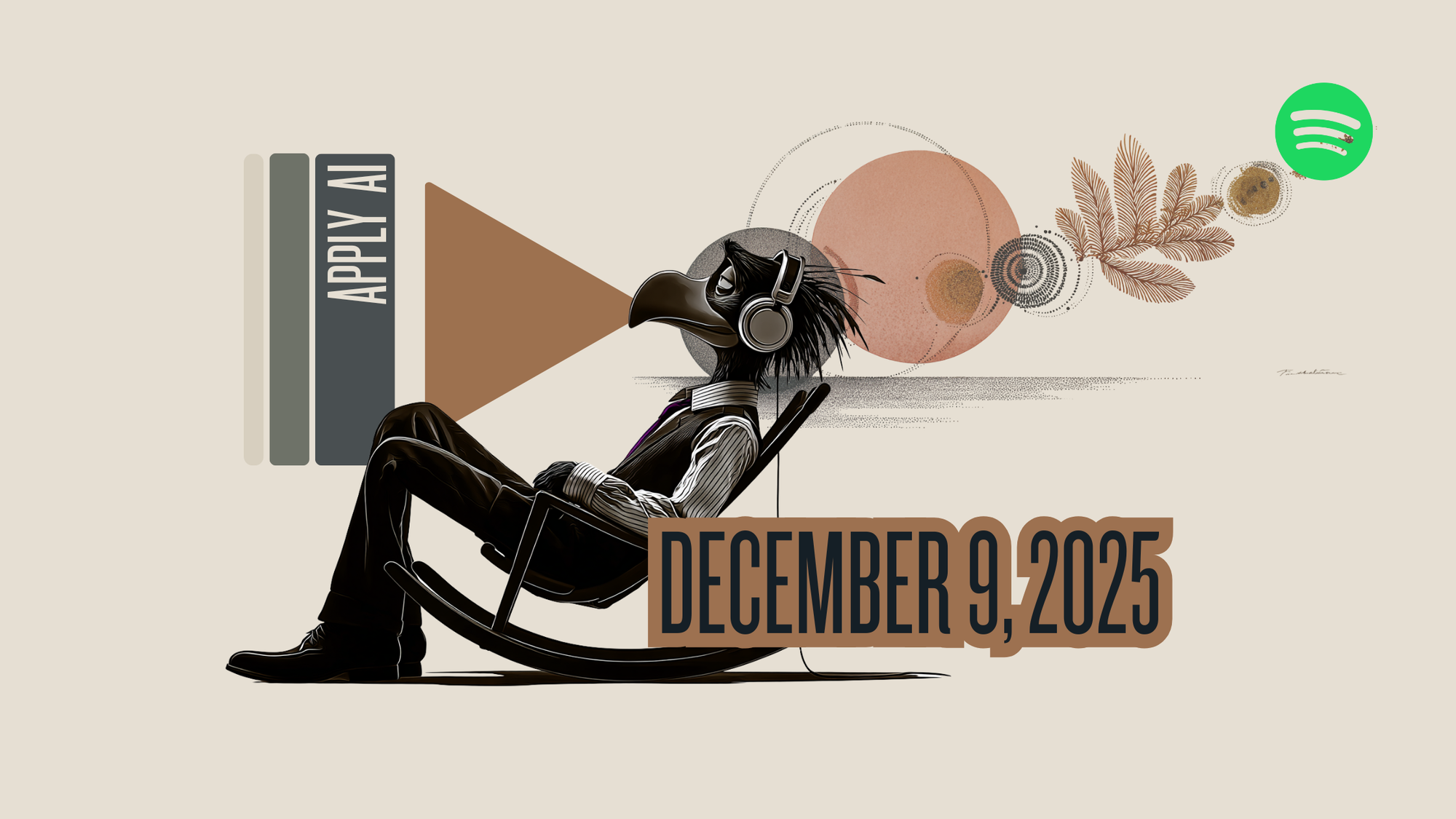AI Tools & Features
🎨 Google Gemini adds Canvas creation and Audio Overviews
What it is: Gemini is Google's AI assistant that provides various capabilities including content creation, information retrieval, and personalized assistance.
What's new: Google has rolled out two significant features to the Gemini app: Canvas and Audio Overviews. Canvas provides a document-like editing environment with two modes: a text editor for collaboratively creating and editing documents, and a code environment that enables users to build interactive web applications without coding experience. Additionally, the new Audio Overviews feature transforms any content—including Deep Research reports, chat conversations, and uploaded files—into podcast-style audio summaries that users can listen to on the go.
Why it matters: These features fundamentally change how we interact with AI assistants. Canvas eliminates the frustration of editing AI-generated content through chat interfaces, making document creation more intuitive. Meanwhile, Audio Overviews transform information consumption, allowing users to absorb complex content during commutes or while multitasking. Together, these features make AI assistance more flexible for different contexts, whether you're at your desk creating content or on the move consuming information.
Learn more about Gemini's new features
🔍 Claude Can Now Search the Web to Keep You Up-to-Date
What it is: Claude is an AI assistant created by Anthropic that helps with writing, research, and problem-solving. Until now, it could only reference information it learned during training, with no access to current events or recent developments.
What's new: Claude can now search the internet in real-time during conversations, providing up-to-date information with direct citations to sources. Instead of showing you a list of search results like Google, Claude processes the information and delivers relevant insights conversationally, expanding its knowledge with current data.
The web search feature is currently available to paid Claude users in the United States, with broader availability coming soon.
Why it matters: This feature bridges the gap between AI's contextual understanding and the need for current information. Researchers, analysts, and everyday users can now verify facts, access recent developments, and incorporate time-sensitive data into their work without switching between tools or manually filtering search results.
Cognitive Insights
⚠️ Study Shows AI Can Harm Learning When Used as a "Crutch"
A large-scale study from University of Pennsylvania researchers reveals something many AI users intuitively suspect: generative AI tools can significantly decrease learning when used as a shortcut. Their field experiment with nearly 1,000 high school students found that while AI tutoring improved immediate performance by 48%, students later performed 17% worse on exams when access to the AI was removed.
The research demonstrates that students tend to rely on AI as a "crutch" during practice sessions rather than developing their own skills. Notably, a specially designed "AI Tutor" that provided incremental hints instead of direct answers largely mitigated these negative effects.
Why it matters: As AI becomes integrated into our daily lives, this research highlights a crucial distinction between productivity and learning. For tasks where you need to build lasting skills, consider using AI as a coach that guides your thinking rather than a tool that provides ready-made answers. The researchers suggest being strategic about when to delegate completely to AI versus when to use it as a learning aid.
Citation: Bastani, Hamsa and Bastani, Osbert and Sungu, Alp and Ge, Haosen and Kabakcı, Özge and Mariman, Rei, Generative AI Can Harm Learning (July 15, 2024). The Wharton School Research Paper, Available at SSRN: https://ssrn.com/abstract=4895486
Intelligence Enhancement
💾 Memory-Augmented Generation Makes AI Systems More Reliable
What it is: Memory-Augmented Generation (MAG) is an AI architecture that separates computation from knowledge storage. Think of traditional AI as a student taking a closed-book exam, relying only on memorized information, while MAG systems function like researchers with library access, consulting external sources before responding.
What's new: Recent MAG implementations have demonstrated up to a 78% reduction in hallucinations (factual errors) compared to conventional AI approaches. This advancement has shown particular success in domains requiring precise information recall such as healthcare, legal, and financial applications, where accuracy is critical.
Why it matters: Hallucinations remain one of the most significant barriers to AI adoption in important scenarios. With MAG, everyday users can rely more confidently on AI responses without extensive fact-checking. Since the knowledge base can be updated independently of the underlying model, these systems can stay current with new information without requiring complete retraining—making them more practical for real-world applications where information changes rapidly.
Learn more about Memory-Augmented Generation
Stories: Human-AI Collaboration in Practice
🏥 AI as a Medical Research Assistant for Everyday People
What it is: ChatGPT and similar AI tools have evolved beyond simple question-answering into research assistants that can help non-specialists understand complex medical information. These tools translate technical knowledge into accessible insights while maintaining the human's role in verification and decision-making.
What's new: David Troness shares how he used AI to gain clarity about his special needs daughter's condition after 34 years of unanswered questions. By inputting his daughter's medications, background, and behavior changes into ChatGPT, he identified a potential medication interaction issue (Serotonin Syndrome) that led to a productive conversation with her doctor and successful treatment adjustment.
Why it matters: This demonstrates how AI can empower patients and caregivers to participate more effectively in healthcare decisions. Rather than replacing medical professionals, AI helped Troness develop informed questions, understand complex interactions, and collaborate more productively with doctors. This approach can be particularly valuable for those managing chronic conditions or navigating complex medical scenarios without specialized training.
✍️ From AI Skeptic to Advocate: A Writer's Journey to Enhanced Productivity
What it is: ChatGPT and other AI writing tools have become increasingly popular for content creation, but many professional writers remain concerned about maintaining authenticity and originality in their work.
What's new: Communications professional Cynthia Lockrey shares her transformation from AI skeptic to strategic adopter, detailing specific ways she incorporates AI into her workflow without compromising her unique voice. Rather than using AI to generate content, she employs it as a structural advisor, headline generator, and technical editor - preserving the creative core of her writing while eliminating time-consuming aspects of the process.
Why it matters: This approach offers a practical middle path for writers hesitant to adopt AI. By using AI for targeted assistance (overcoming writer's block, generating headlines, editing for grammar) while maintaining ownership of ideas and storytelling, creators can boost productivity without sacrificing authenticity. As Lockrey notes, "Make sure you use it as a tool not a crutch" - a philosophy that applies to all intelligence augmentation technologies.
Read Cynthia's full transformation story
Stay brilliantly human,
Word of Lore.ai














